Originally published on: March 8th 2017
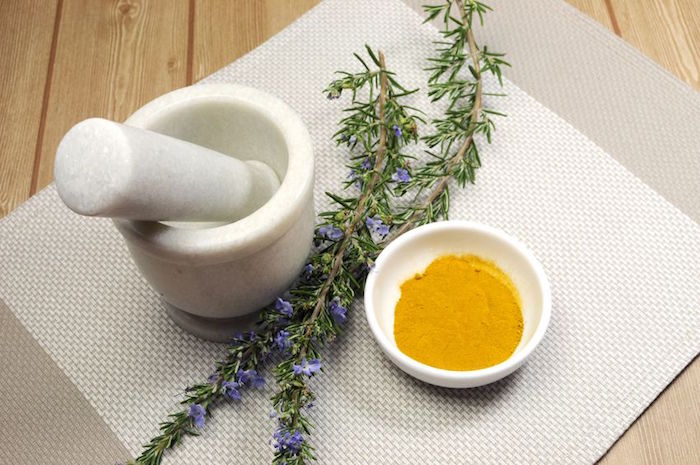
Nature’s bounty has played an integral role in modern drug development so is it any wonder some common kitchen herbs and spices have the potential to play a role in weight loss and the fight against obesity?
One of the reasons a whole foods diet plays such a crucial role in good health is because it incorporates those very foods, herbs and spices that possess the ability to heal and support our body. Often these foods are taken for granted, thrown into a soup here or a stew there without further thought to the powerful benefits they bestow upon those lucky enough to consume them. But in fact natural substances have been a source of pharmacology for years with many well-known drugs on the market today being derived directly or indirectly from plants: think morphine and aspirin. But when it comes to weight loss and obesity, what role do plants have to play? As it turns out – a rather large one.
Obesity has reached an epidemic state and continues to grow at an alarming rate. And co-morbidity is a common issue as we see other health aliments taking centre stage with obesity such as type 2 diabetes, hypertension, cardiovascular disease and various cancers. Luckily we can turn to our very own kitchen when it comes to keeping our weight under control (and this might very well be the best solution to date!). There are many powerful herbs and spices that have been studied for their weight loss benefits. Here are 5 of them:
1. Turmeric
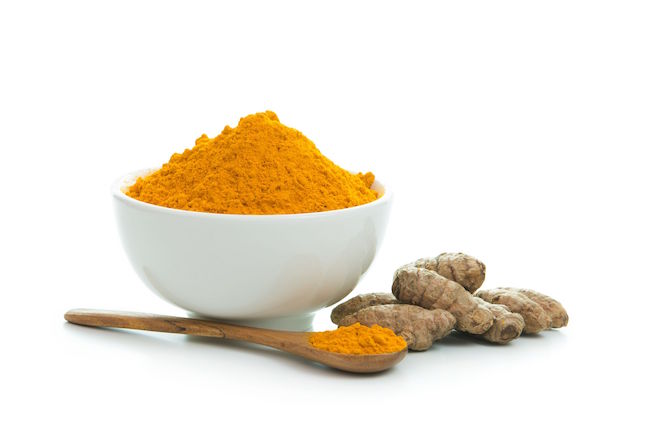
Search the GMI Turmeric database
The beautiful golden spice rears its head again! Is there anything this spice can’t do? We now have evidence to support turmeric’s role as a weight loss agent. A randomized, controlled study showed curcumin – the powerful phytonutrient in turmeric – significantly increased weight loss and reduced body fat, waistline, hip circumference and BMI. Curcumin has also been shown to have the ability to improve insulin sensitivity and ameliorate weight gain and fat accumulation in the liver and fat tissues of obese mice. Why do we care about insulin sensitivity? Because insulin is our “fat storage” hormone hence, when you have a lot of it circulating in your system this makes it more difficult to lose weight. When striving for weight loss getting your insulin under control is a big consideration because insulin resistance plays a key role in obesity and excess stubborn weight.
Furthermore, curcumin may also play a role in reducing leptin resistance. Leptin is a hormone in the body that tells our brain when we are full and gives us the signal to stop eating. It’s our “satiated” hormone. However, often a condition known as leptin resistance is seen in overweight individuals. This is when the brain doesn’t get the signal that it’s full and therefore wants to continue to eat. Leptin resistance occurs when cells have essentially become numb to the commands of leptin. Unfortunately leptin resistance plays a vicious role in perpetuating weight gain in already overweight individuals however, curcumin might help. In a mouse study curcumin was shown to decrease both insulin and leptin resistance. But that’s not all! Curcumin is also able to decrease the expression of the enzyme fatty acid synthase, which catalyzes fatty acid synthesis, and by doing so curcumin is able to reduce the accumulation of fat. Curcumin has also been shown to have the ability to reverse insulin resistance, hyperglycemia, hyperlipidemia, and other inflammatory symptoms associated with obesity and metabolic disease as well as up-regulating adiponectin. Adiponectin is an important protein for weight loss because it’s involved in regulating glucose levels as well as fatty acid breakdown and it also increases the body’s sensitivity to insulin. All this makes curcumin a significant player when it comes to weight loss treatment.
2. Rosemary
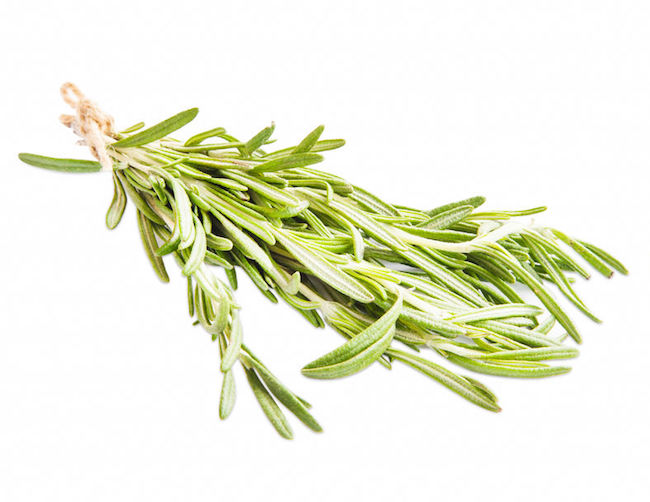
Search the GMI Rosemary database
Rosemary is a fragrant herb that adds a distinctly delicious taste to lamb, beef, poultry and vegetable dishes but it also boasts the powerful ability to reduce the risk of obesity. Carnosic acid – a major bioactive component in rosemary extract – was studied for its effect on high-fat-diet-induced obesity and metabolic syndrome in mice. The study found that those mice fed a high-fat diet with rosemary extract experienced a reduction in body weight, fat, liver markers such as ALT and AST, glucose and insulin levels as well as a reduction in liver weight, liver triglycerides, and free fatty acid levels. The study determined that rosemary may be a promising dietary agent to reduce the risk of obesity and metabolic syndrome. To think, baked potatoes are back on the menu again! Just ensure they’re sprinkled in rosemary in order to have a positive impact to your waistline.
3. Black pepper
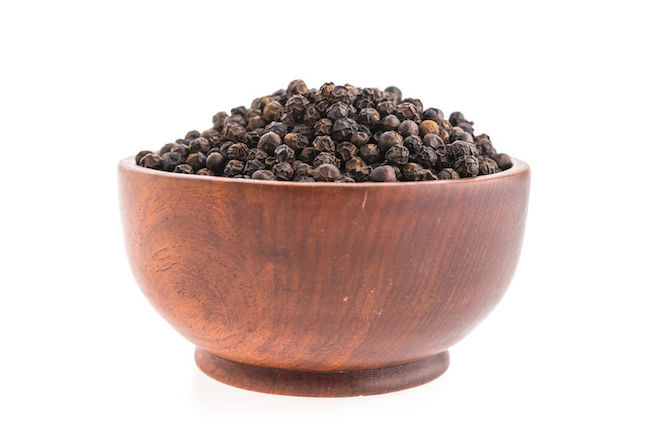
Search the GMI Piperine database
Pepper is one of the most common spices kept in kitchen cabinets worldwide, but enhancing the flavor of food is only one of pepper’s myriad of talents. Piperine – the main compound of black pepper that makes the spice pungent – is a powerful agent for weight loss. In one study piperine showed the ability to up-regulate resting muscle metabolism thereby showing potential as a treatment for obesity. Another study done on obese rats showed pepper to be an effective natural treatment in reducing body weight, improving insulin sensitivity and improving leptin sensitivity – all key players when it comes to weight issues. Plus, when consumed with turmeric, pepper significantly increases the bioavailability of curcumin making these two a powerful combination when it comes to weight loss management.
4. Fenugreek
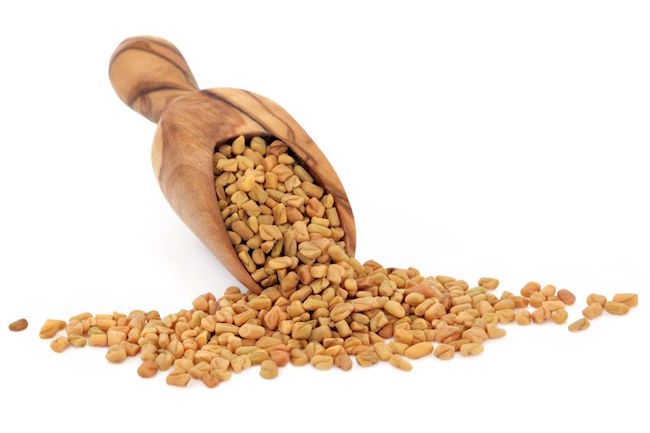
Search the GMI Fenugreek database
Galactomannan is a soluble dietary fibre extracted from Canadian-grown fenugreek seeds. This powerful natural substance has been shown to reduce the glycemic response and insulin secretion in high-sucrose fed rats. Additionally, this rat study showed a reduction in body weight, triglycerides and total cholesterol. Another study showed a reduction in body weight gain and plasma triglyceride gain induced by a high fat diet fed to obese mice. And yet another study showed fenugreek has the ability to work as a weight preventative by improving glucose and lipid metabolism, enhancing insulin sensitivity, and down-regulating lipogenic (fat-forming) enzymes.
5. Dill
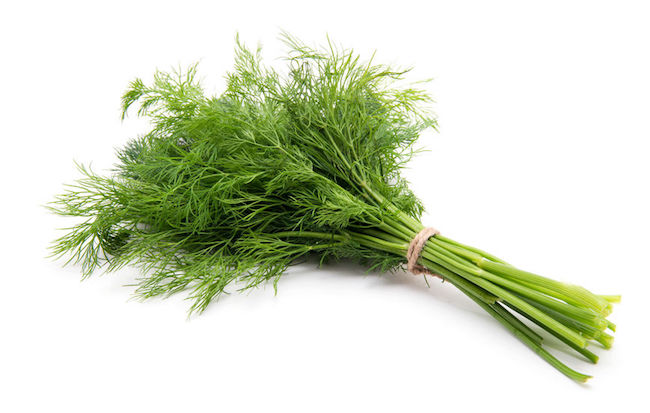
Commonly used in Iranian traditional medicine, dill also boasts a weight loss secret. In one study dill was able to bring about a significant decrease in body weight and food intake. This was believed due to an increase in the serotonin neurotransmitter precursor: 5HTP. It was theorized that increasing levels of 5HTP subsequently increased satiety in this study, which was expressed as a decrease in food intake and subsequently a reduction in body weight.
There is still so much we are to learn about real, unprocessed food and the powerful nutrients within it. We may never understand all of its complexities but one thing is for sure: whole foods, herbs and spices can do a body – and waistline – good.
For evidence-based research on anti-obesity agents, visit the GreenMedInfo.com Research Dashboard.
SaveSaveSaveSave
Tara is a Registered Holistic Nutritionist who also has training from the Institute for Functional Medicine, specifically in hormones. Her practice focuses on helping busy mums navigate the overwhelm, guilt and confusion surrounding how to live healthfully in a hectic world, by providing evidenced-based functional nutrition and lifestyle strategies to her clients. Tara is a mummy of two, an entrepreneur, and a writer who writes for publications around the globe with a specific focus on nutrition. She runs her business online in order to help as many women as possible live the lives they deservea not ones fraught with hormonal imbalances and all the problems that come along with them. Her own struggles with hormone imbalance were what lead her on this path and are why she’s able to understand and empathize with the struggles of the modern day mum.
© March 8th 2017 GreenMedInfo LLC. This work is reproduced and distributed with the permission of GreenMedInfo LLC. Want to learn more from GreenMedInfo? Sign up for the newsletter here https://www.greenmedinfo.com/greenmed/newsletter.
Source: Original Article
Originally published on: March 8th 2017



